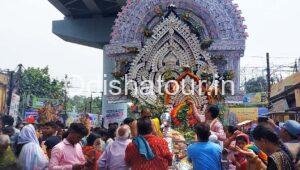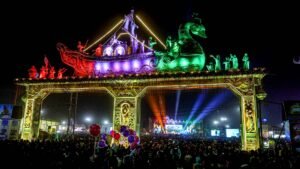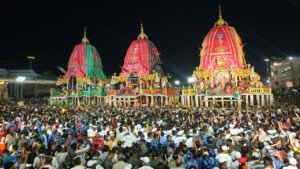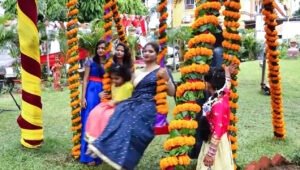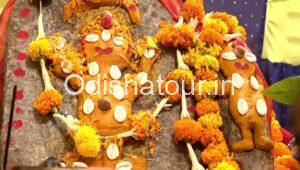Khudurukuni Osha is one of the most heartfelt village rituals of Odisha, observed during the month of Bhadrab (August–September). On every Sunday of this sacred month, young unmarried girls gather near a river or pond after their morning bath, shaping an image of the Goddess Mangala from clay. With songs, rituals, and offerings, they pray for her blessings of protection and well-being while reciting age-old ballads passed down across generations. At the heart of this observance lies the poignant tale of Taapoi, a young girl whose story is a symbol of endurance, faith, and justice.
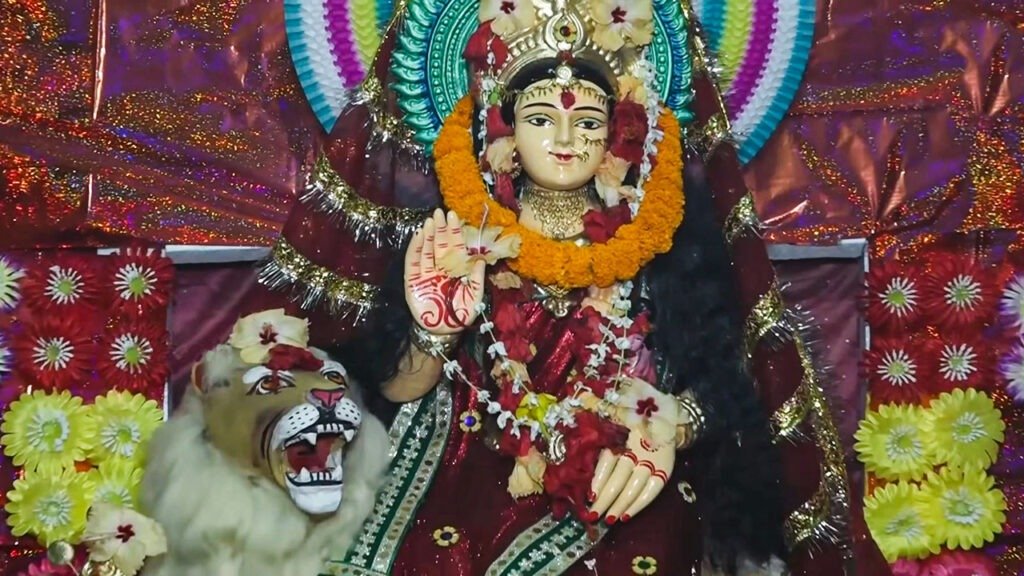
Khudurkuni Osa: The Tale of Taapoi
Long ago, there lived a wealthy merchant named Tanayavanta. He had seven sons and a beloved daughter, Taapoi, whom he raised with great affection. After the death of their parents, the seven brothers set sail on long trading voyages, leaving Taapoi in the care of their wives.
But once the brothers departed, Taapoi’s life turned into misery. The sisters-in-law denied her food, deprived her of rest, and forced her to herd goats in the wilderness. Only the youngest brother’s wife treated her with kindness.
One day, when her favourite goat Ghormoni went missing, the cruelty grew unbearable. In her helplessness, Taapoi turned to Goddess Mangala, worshipping her with utmost devotion. The goat was miraculously found, but her suffering did not end. Heartbroken, she wandered into the forest, climbed a tree, and wept bitterly. Years passed until her brothers returned from their voyages. Hearing her sorrowful voice, they recognised their sister and were shaken by her plight. Enraged, they gave her the strength to punish those who wronged her. Taapoi, with a trembling hand but a resolute heart, cut off the noses of her cruel sisters-in-law—except for the youngest one, who had shown her compassion. The others fled into the jungle, only to be devoured by wild tigers, a punishment of fate itself.
Meaning of the Ritual
The observance of Khudurkuni Osha is more than worship—it is a symbol of protection for girls, a prayer for security in a brother’s household, and a reminder of justice through faith and resilience. It teaches that cruelty will not prevail, and divine grace always comes to those who endure with patience and devotion. Even today, villages in Odisha come alive on the Sundays of Bhadrab, as young girls sing the Taapoi Kahani (the ballad of Taapoi), shaping mud idols on riverbanks, and celebrating the enduring bond between sisters, brothers, and the Goddess Mangala.

